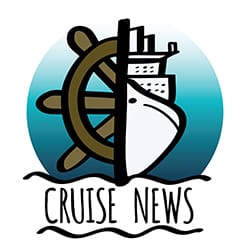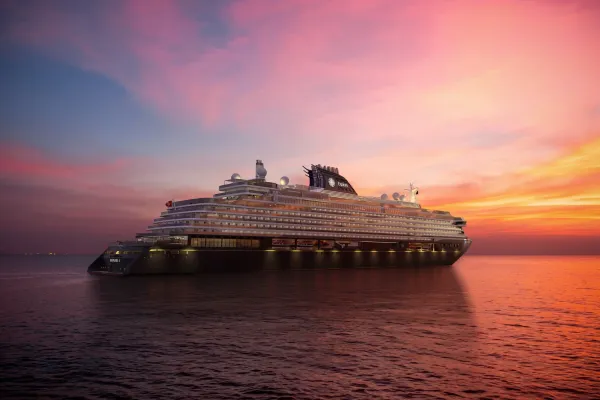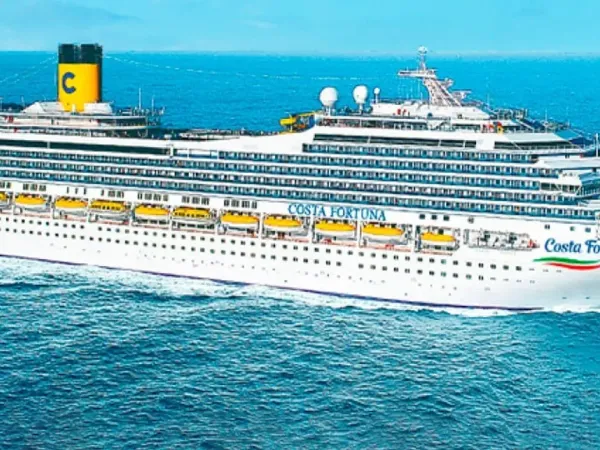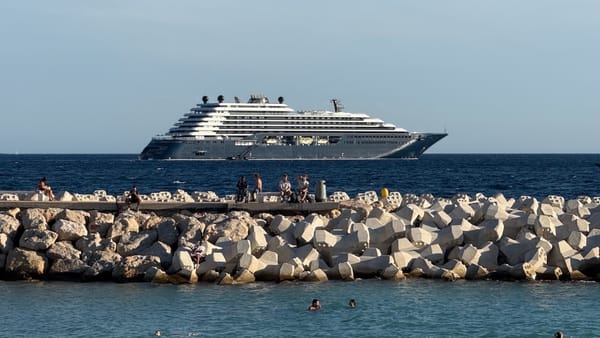Carnival clarifies cruise food restrictions

When planning a cruise, many travelers anticipate trying various dishes and snacks while on-board and at port. However, it is essential to understand the food restrictions that cruise lines impose, especially regarding taking food off the ship during port visits. Recently, Carnival Cruise Line clarified its policies concerning this matter after some guests expressed confusion over the rules. These guidelines are notably strict due to a combination of health regulations and agricultural protections.
Cruise Line Food Policy Overview
Cruise lines have established food policies for a variety of reasons, mainly revolving around health regulations, national security, and agricultural protections. Notably, these policies are consistent across cruise companies to ensure compliance with international and domestic laws.
Many passengers are typically unaware that they are prohibited from taking food off the ship while in port. This restriction aims to prevent potential contamination and to adhere to stringent local customs rules in various countries.
Carnival Cruise Line's Communication
John Heald, Carnival Cruise Line’s Brand Ambassador, is instrumental in communicating with guests about these food restrictions. He often addresses questions and complaints through social media, providing transparency about cruise policies and the rationale behind them.
Recently, Heald responded to a guest's dissatisfaction regarding the removal of food items from the ship. This guest expressed that they were under the impression that taking food off the vessel was a common practice across cruise lines, which is not necessarily the case.
The Guest's Experience
The irate passenger recounted an incident where a crew member disposed of their food. The guest had been attempting to take snacks from the ship, expecting to enjoy them at the beach.
The crew member engaged in the enforcement of company policy, which involved discarding the food the guest attempted to take, citing health regulations as the reason. This rule aims to prevent contamination and the introduction of non-declared food items into port areas.
Understanding Local Regulations
Heald emphasized that while the guest's complaint was valid from a personal perspective, it overlooked the broader context of the rules enforced by authorities. Many localities around the world have stringent regulations regarding food importation that can affect cruise passengers.
The crucial takeaway is that these restrictions are not solely a Carnival Cruise Line policy; they are universal among cruise operators and they adhere to local laws and regulations regarding food consumption.
Common Cruise Food Restrictions
The primary restriction many passengers face is that they cannot take perishable food items with them when they leave the ship. This includes items like fresh fruits, cheese, meats, and pastries, which are at higher risk of causing health issues if not consumed properly.
Additionally, cruise lines are often mandated to follow U.S. Customs and Border Protection and Department of Agriculture regulations, further tightening the rules against taking food items off a ship.
Permitted Items
Although it may seem restrictive, passengers can still bring some food items aboard the ship after a port visit. Sealed and commercially packaged goods, such as snacks or baked goods like Tortuga Rum Cake, are generally acceptable.
However, cruise passengers should be aware that all food items brought back onboard must undergo a security scanning process, ensuring they are sealed and safe for consumption.
Health and Safety Considerations
Preventing food contamination is a significant concern for cruise lines. The food that passengers handle can become contaminated through unclean hands or contact with the surrounding environment, prompting the need for strict rules regarding food disposal.
Cruise lines must guarantee that all food served onboard correlates with health and safety standards to protect the wellbeing of their guests.
Societal Norms and Expectations
Many cruisers operate under the assumption that taking food off the ship is commonplace based on prior experiences with other travel forms. However, this perception can lead to misunderstandings about what is acceptable while cruising.
Passengers are encouraged to familiarize themselves with the policies of their cruise line, as well as the regulations of the countries they will visit, to avoid unnecessary issues.
Conclusion
Cruise food restrictions can initially seem frustrating for travelers looking to enjoy their snacks while exploring new places. Understanding the reasons behind these policies, including health regulations and customs rules, can provide a clearer picture for guests aboard any cruise.
By adhering to these guidelines, guests can ensure not only their safety but also comply with the legal requirements of the various locations they visit. Knowledge about cruise food restrictions can save guests from potential disappointments during their travels.
FAQs
What food items can I take off a cruise ship while in port?
You generally cannot take perishable items like fruits, meats, or dairy products off the ship. Sealed, commercially packaged snacks are permissible.
Why can’t I take food from the ship to the port?
The main reason for this restriction is to prevent contamination and to adhere to local importation laws that protect agriculture and public health.
Are these food restrictions the same across all cruise lines?
Yes, all major cruise lines enforce similar restrictions due to compliance with international and local laws concerning food safety and health.
Can I bring food back onto the ship after leaving port?
Generally, you can bring sealed and commercially packaged food items back on board, but all items must go through security checks when reboarding.
What should I do if I want snacks while at port?
You have options to purchase snacks at local vendors or return to the ship for meals instead, ensuring compliance with the rules.




